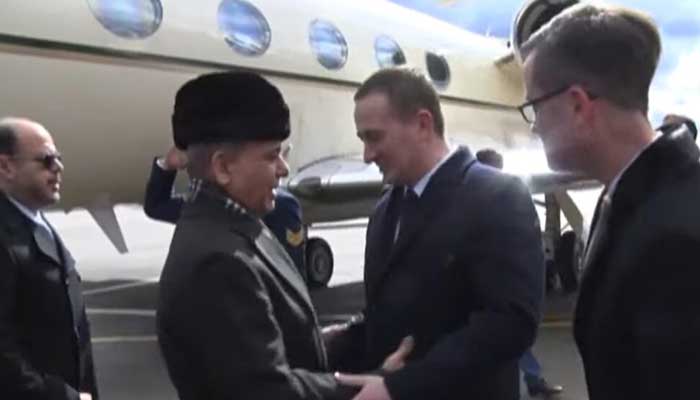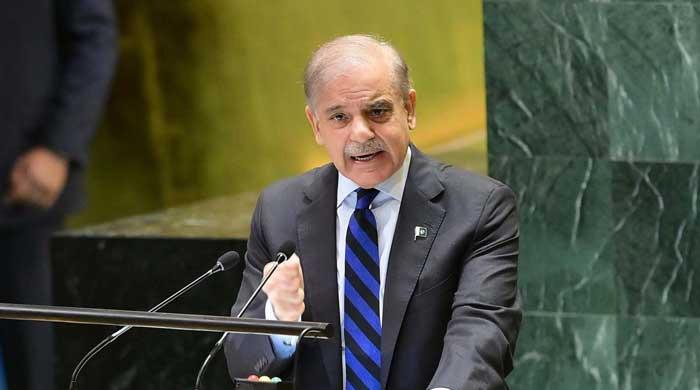PM Shehbaz arrives in Belarus on two-day official visit
Belarus Premier Alexander Turchin and Pakistan embassy officials warmly welcome prime minister
April 10, 2025

- CM Punjab Maryam Nawaz, other ministers accompany premier on visit.
- Both nations to sign several agreements to strengthen cooperation.
- High-level bilateral engagements laid groundwork for latest visit.
Prime Minister Shehbaz Sharif arrived in Minsk on Thursday for a two-day official visit to Belarus from April 10 to 11 at the invitation of President Aleksandr Lukashenko.
Belarus Prime Minister Alexander Turchin and officials of Pakistan embassy in Belarus warmly welcomed the prime minister.
PM Shehbaz is accompanied by a high-level delegation, including Deputy Prime Minister and Foreign Minister Senator Muhammad Ishaq Dar, Chief Minister of Punjab Maryam Nawaz, Federal Minister for Information Attaullah Tarar, and senior officials.
During his visit, the prime minister will hold talks with President Lukashenko to review progress in areas of mutual interest.
The two sides are also expected to sign several agreements to further strengthen cooperation.
Prime Minister Shehbaz Sharif’s visit underscores a strong and ongoing partnership between Pakistan and Belarus.
This visit follows President Lukashenko's important visit to Pakistan in November 2024, during which both nations signed more than a dozen important memoranda of understanding (MoUs) and agreements, with pledges to further expand bilateral cooperation in diverse fields.
Both PM Shehbaz and Lukashenko had emphasised the importance of advancing political dialogue and strengthening inter-parliamentary relations.
They also focused on expanding trade and economic cooperation, adopting a collaborative approach to regional economic integration and connectivity and enhancing the legal framework to facilitate bilateral collaboration.











